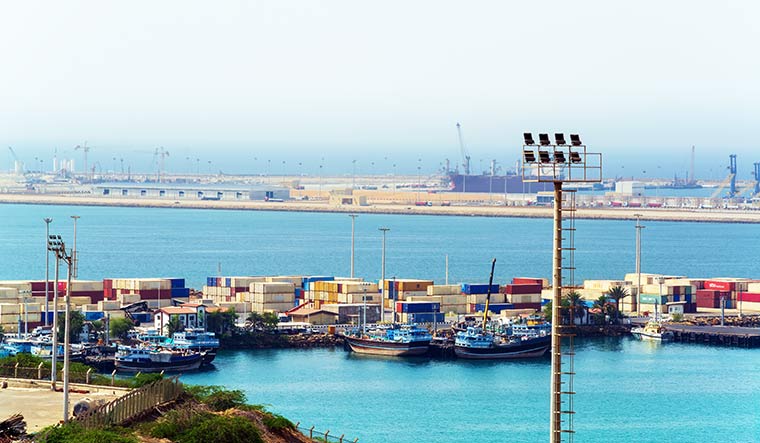Iranian website: 'Replace India with China in Chabahar Port deal as New Delhi sided with Zionist regime'
 Port of call: Chabahar port in Iran | Shutterstock
Port of call: Chabahar port in Iran | Shutterstock
India had adopted a neutral stance in the recent Israel-Iran war, considering it enjoys good bilateral relations with both countries. New Delhi has dissociated itself from the SCO statement, which strongly condemned the military strikes carried out by Israel, calling for a diplomatic solution to the crisis.
However, India's stance has not gone down well with a section of Iranian media, which states that the country "cannot be a reliable partner for Iran as it sided with Israel".
A report that appeared on Iranian news website Khabar Online has decried India's position, stating its "increasing alignment with the Zionist regime and prioritisation of projects like IMEC" has raised serious questions about New Delhi's true commitment to the Chabahar project.
India and Iran have signed a 10-year agreement for the operation of Chabahar Port, a strategically important project for India's trade and connectivity with Central Asia and beyond.
"Now is the time for Iran to reconsider its interaction with India in this project with a realistic and strategic perspective," the report said.
The article says that India committed to investing $85 million in the development of Chabahar Port and 150 million in related infrastructure, since the signing of the 2016 agreement. "But the project faced many hurdles, especially the US sanctions. However, a closer look at the deal shows India has complied with US sanctions policies to the maximum extent possible despite its claim of strategic independence," the article said.
It added that India limited itself to operational activities such as port operations instead of advancing infrastructure development in the Chabahar project. India's unwillingness to take risks in the face of secondary sanctions indicates a lack of real will to transform Chabahar into a regional hub, the Iranian media report said.
The article also slams India's foreign policy, accusing it of adopting a passive stance towards the "atrocities committed by the Zionist regime."
"India not only adopted a passive stance towards these tragedies, but also joined the IMEA (India-Middle East-Europe) corridor, effectively siding with the Zionist regime, the Emirates, and the US regime. This corridor, which has been proposed as a competitor to the Chinese corridors and even the North-South corridor, indicates a shift in India’s priorities from Chabahar to other transit routes," the report said, adding that India's alignment with Israel is in contradiction with principled positions of Iran in supporting the Palestinian cause.
It said "the Chabahar experience" showed that India, despite its grand promises, has not kept its commitments in practice and has shied away from serious investment in this project under the pressure of sanctions.
"The need to review bilateral relations has become more apparent than ever. Islamic Iran must seek new partners for the development of Chabahar with a strategic perspective," the article said, adding that China, with its successful experience in developing Gwadar Port and the Belt and Road Initiative, can make significant investments in Chabahar and connect it to part of its global transit network.
Middle East